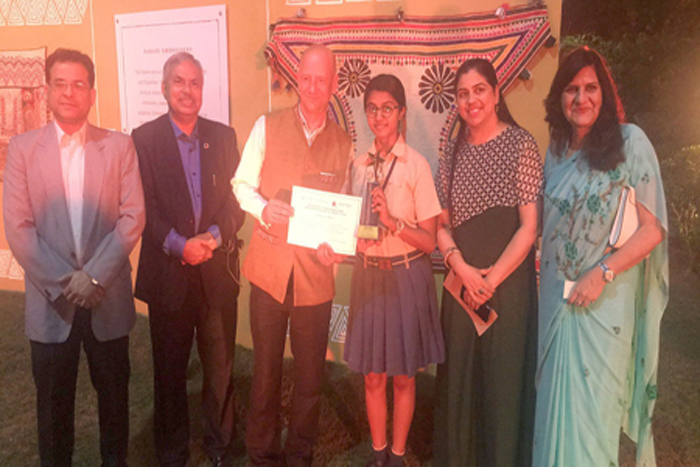Tagore International School believes that ‘quality education is inclusive education’. This belief stems from the observation that classrooms are not only a place of learning but also an empathetic support system for the students with special needs and allow them to stand shoulder-to-shoulder with their peers by placing them in an environment which provides them the same opportunities to flourish as other students. It is from this ideology that Project Drishti came about. The purpose of this initiative is to enable visually impaired students in inclusive classrooms to reach their full potential and have enriching classroom experiences as their peers by providing them accessible books, educational tools, kits and devices, and create a system to help them solve any other problems they encounter in learning.
We plan to take a three-pronged approach to ensure that these students too have a fulfilling classroom experience.
Digitization of Books
We have decided to tackle the large deficit existing in the availability of digitized books for the visually impaired. Nowadays, since they prefer to work on computers, they use audio books or e-books. The process of converting books from print to e-books is called digitization. We have not only conducted two 10 hour long marathons in our school, but have also trained students other schools and conducted marathons there in order to spread awareness and take this endeavor forward. Since November 2017, we have digitized close to 20 books i.e. almost 6,500 pages.
On 31st July our students with the help of the NGO Saksham organised another digitization marathon in school. Digitization of books refers to the scanning and editing of books online to allow printed books to be converted to various formats like audio books which are accessible and easy to use for visually impaired students.
The marathon began at 8:30am and went on till 5:45 in the evening. There were a total of 65 volunteers, all of which were students who enthusiastically participated in the marathon. Over a span of 9 hours the students were able to digitise 8 books i.e. 1897 pages. We have surpassed last year’s record of 1369 pages. We hope to organise many more such marathons within school and outside so as to make a significant contribution to the accessibility of digitised books for the visually impaired.
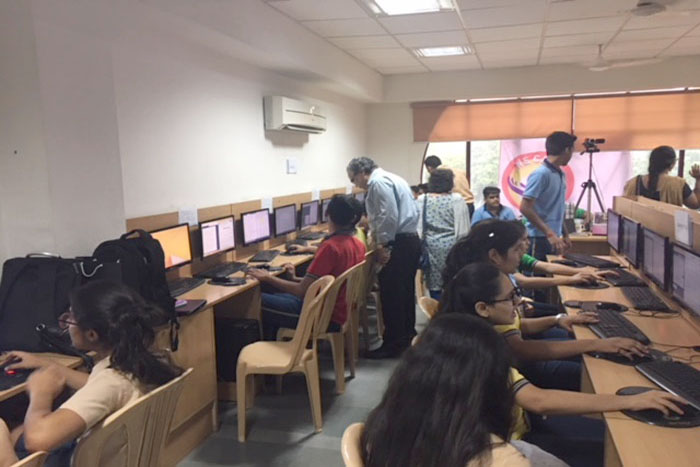
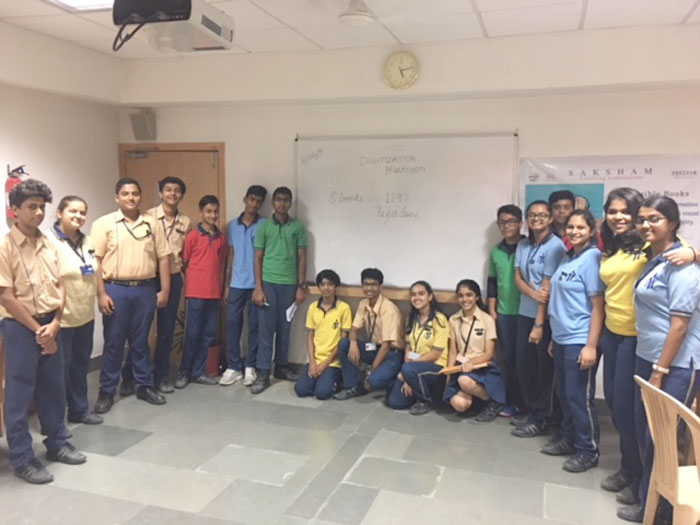
Aaryan Kohli XI A
Tactile Tools
Through research we came to the conclusion that visually impaired students need variedtactile tools in place of the regular material that children use in classrooms and are working on creating kits for students of different ages with elements such as tactile geometry boxes sourced form WorthTrust, embossed maps and science diagrams along with tactile colour pencils to help them connect objects in daily life to different colours. We are also in interaction with the Centre of Excellence in Tactile Graphics, IIT Delhi, to develop booksand games specifically catered towards the visually impaired, while also learning about the latest technology and practices used in it. Quality education also involves co-scholastic activities, and to enable visually impaired students get a taste of art, we are developing a tactile 3D art installation on the NAB premises.
We seek your support to provide educational kits to 100 visually impaired students
The students working diligently during stay backs and Saturdays working for this cause.
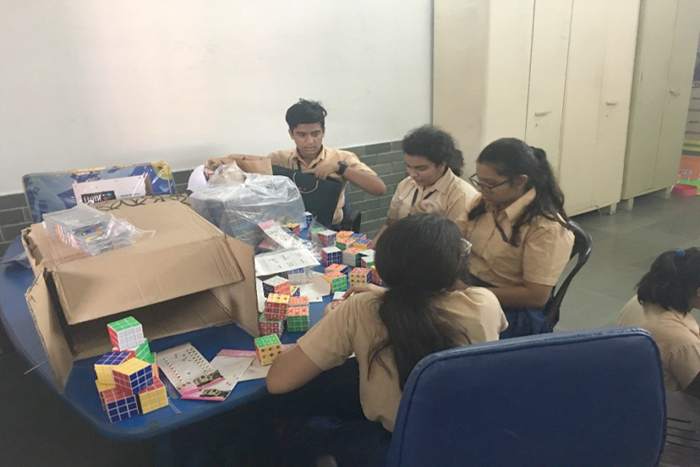
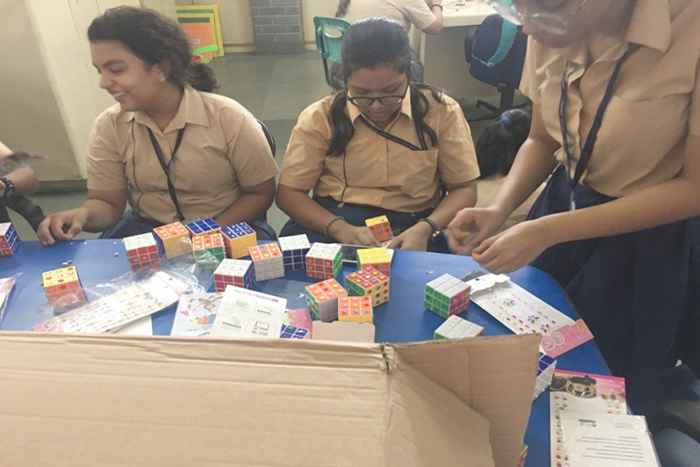
Kits prepared by students
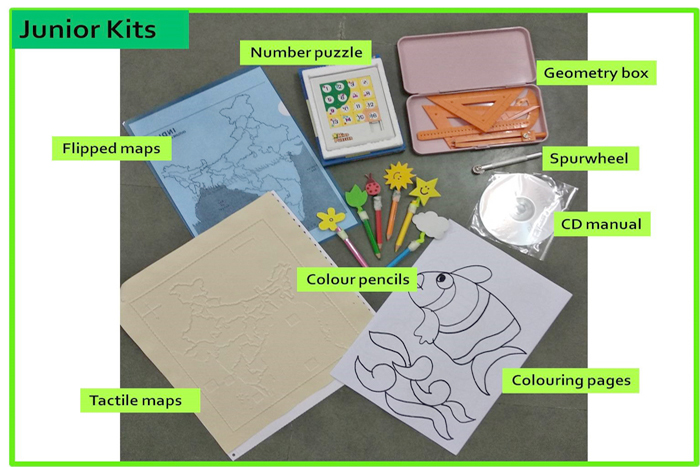
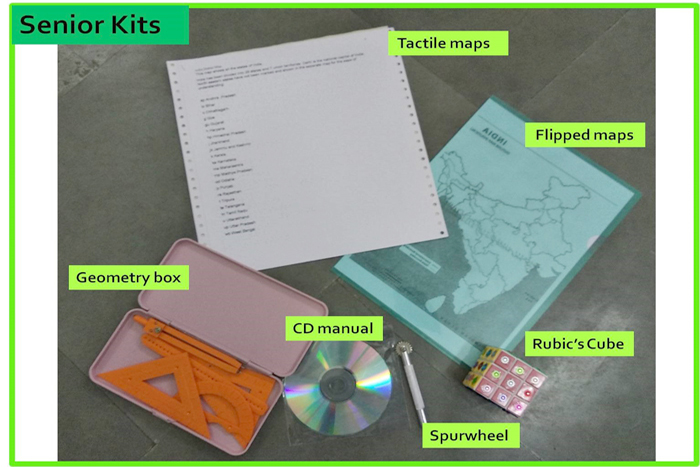
Art Installation at the National Association for the Blind, Sector 5 RK Puram.
Technological Innovations
We are also aiming towards providing technological innovations in the fields of orientation and mobility, and also communication for the visually impaired. We already have two models in the pipeline. One of them is a navigation belt which uses infrared sensors to notify a child about his/her location while navigating the school, while the other is a real time speech to text converter which allows them to send messages and questions to the teacher, and receive responses.
IILM Young Citizen Award for Innovation & Social Impact
On 24 October 2018, V. Chaitanya , a team leader of Project Drishti showcased the elements of the project at the IILM Young Citizen Award for Innovation & Social Impact. After impressing the 5 member panel of judges, the project won the first prize out of 60 others that were presented by different schools from all over the country. The prize distribution ceremony took place on the same day itself at the UN House in Lodhi Estate during UN Day celebrations where Mr. Yuri Afanasiev ,the UN Resident Coordinator and UNDP Resident Representative in India, handed over a trophy as well as a cheque for the amount of Rs. 1 lakh to Chaitanya. The entire prize money has been donated by the project members back to school and will be put to use for developing more learning tools for the visually impaired and funding activities of the other We Care projects in school.
